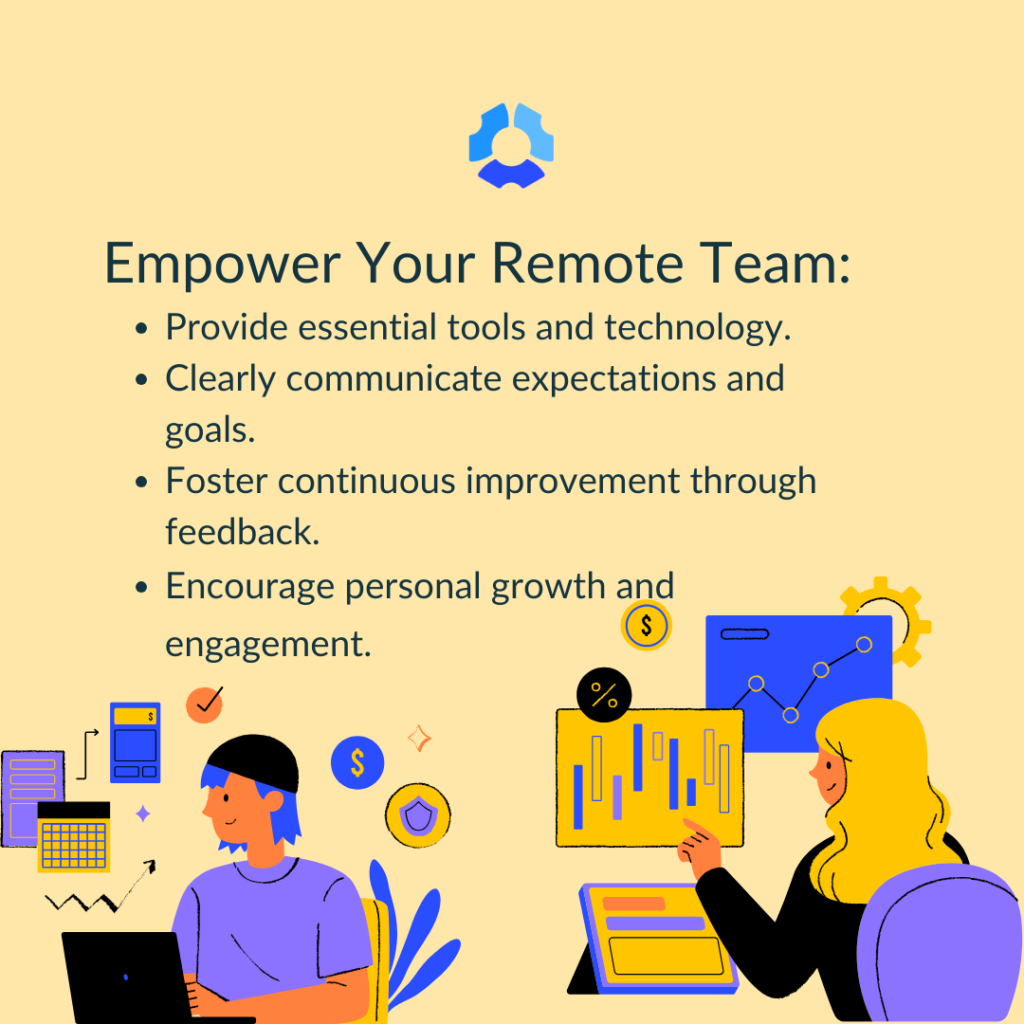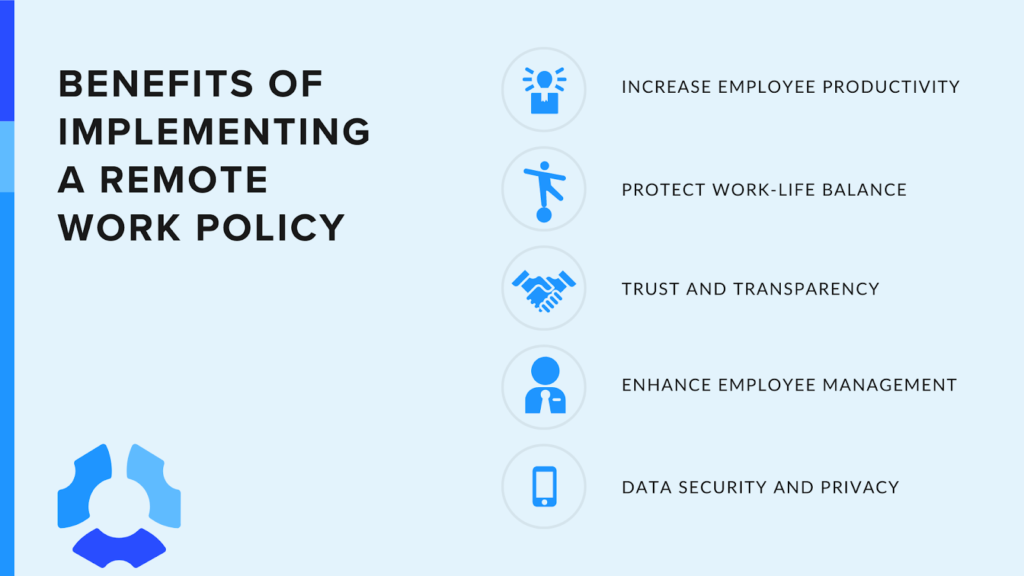Due to the pandemic, advances in technology, and various other factors, the world has begun to move towards more flexible work environments. While it is no surprise that 98% of employees want to work remotely, there are plenty of benefits of remote work for business owners, too.
While it may take some adapting to, remote work has a variety of benefits for both employees and employers. In this post, we’ll cover some of the benefits of remote work, specifically for business owners.
Boost your team’s efficiency with Hubstaff's productivity tools
Try it free for 14 daysWorking remote pros and cons
Before we look at the benefits of remote work, it’s helpful to look at the obstacles you’ll need to overcome. Here are some of the disadvantages of remote work.

Disadvantage of remote work
To balance our normal approach of signing the praises of remote work and remote workers, we’ll start this off by looking at some of the downsides to remote work. These may not be applicable to every remote workforce, but they’re common when large teams work remotely.
Thankfully, as you read these concerns around employee engagement and more, note that you can tackle many of them with proper planning and tools. Think of these as things to avoid when allowing employees to be remote workers.
1. Communication barriers
When you’re unable to communicate face-to-face, misunderstandings often arise. Fortunately, there are communication tools and best practices that the best remote teams use to address this issue.
2. Building company culture
When employees don’t have the opportunity to interact in person, it can be difficult to foster a strong company culture. Spontaneous interactions and team-building activities will never feel the same as in person, but you can do your best to simulate them virtually.
3. Technology dependence
Remote work relies heavily on technology. Unfortunately, technical issues can disrupt productivity and stifle communication.
4. Maintaining work-life balance
Employees often struggle to adjust when the boundaries between work and personal life are so blurred. While you might think remote employees slack off more, studies have shown the exact opposite.
5. Security risks
Remote work poses security challenges for organizations. Data breaches and cyber threats are more prevalent when employees access company systems and information from diverse locations. Without serious attention and enterprise-grade tools, your company could be at risk.
While you’re right to approach remote work cautiously, try to be optimistic. At Hubstaff, we feel the benefits of remote work vastly outweigh the negatives. With more than 100 employees across five continents and a plethora of countries, we have plenty to say about the benefits of remote work.

Benefits of remote work
In an ever-evolving business landscape, remote work is emerging as the new normal — a shift that brings many benefits for business owners.
From financial savings to increased productivity and employee satisfaction, the advantages of remote work vastly outweigh the negatives. Let’s explore these benefits and uncover how they can propel your business to new heights.
1. Cost savings
Remote work eliminates the expense of office space, utilities, office supplies, and commuting reimbursements. Some companies eliminate parking fees they had in office complexes, too. All these help with substantial savings — especially for businesses operating in high-cost locations. Your employees also reduce expenses when they have a remote job.
2. Increased productivity
Many studies have shown that remote workers often have higher productivity levels. The flexibility and comfort of working from home can lead to more focus and fewer distractions.
3. Expanded talent pool
If employees can work from anywhere, that means you can hire people anywhere in the world. This helps you look outside of your city and tap into the expertise that the entire world has to offer.
4. Enhanced employee retention
Offering flexible work can improve job satisfaction, help employees find work-life balance, and reduce turnover. This can save businesses significant time and money on recruitment and training.
5. Reduced carbon footprint
By eliminating daily commutes, businesses that adopt remote work contribute less to air pollution. This helps them align their company values with sustainability goals. 70% of employees (or prospective employees) find it meaningful when work helps them lessen their environmental impact.
When done right, remote work has the chance to offer a better work-life balance for your team. While there are small elements like an option to save money or reduce the number of remote meetings, people also get options to work how they prefer in spaces they love.
Flexible work arrangements can play a major role in increased job satisfaction. When your people like coming to work a little more, you get to see many benefits like improved employee productivity, reduced absenteeism, and even potential boosts to revenue and profits.
That’s not a bad tradeoff for giving someone a flexible work schedule or letting people try out new time zones.

Reap the benefits of remote work
Remote work is not just a fleeting trend but a legitimate shift in how businesses operate. While it may come with its own set of challenges, the benefits it offers are immense. We’ve touched on a few like:
- Significant cost savings
- A larger talent pool
- Increased productivity
- Enhanced employee retention
- Growing emphasis on sustainable practices
Tools like Hubstaff help remote teams of all sizes track time, pay employees, see real-time productivity metrics, and more.

Interested in making the switch to remote work? Check out more of our thought leadership pieces on managing remote and hybrid teams:
- The Complete Guide to Motivating Remote Employees in 2023
- The Deceptively Simple Link Between Remote Work and Company Growth
- The Business Case for Remote Work: Send This to Your CEO

Go forth and work remotely
As with any significant change, proper planning, clear communication, and robust security measures can mitigate potential issues. Ultimately, the success of a remote work structure depends on the business’s ability to adapt, innovate, and harness the potential of this new way of working. Embrace this shift and let the convenience of remote work propel your business to new horizons of success.
And when you give yourself permission to work a remote job just like your remote employees, there’s a chance you’ll see a better work-life balance too. Enjoy and welcome the benefits of having more flexibility, less commute time, and, less stress.
Most popular
How to Calculate a Raise: Practical Guide for Employers
By 2030, the US alone will lose $430 billion annually due to low talent retention — and a lot of this turnover stems from low pa...
How to Survive and Thrive in an 80-Hour Work Week
It’s hard to believe that only a century ago, the 80-hour work week was the norm in the United States. Then, in 1926, the Ford M...
Mastering Workforce Scheduling: Techniques and Tools for Success
Imagine a workday where scheduling your workforce effectively ensures that every shift is perfectly aligned with your business nee...
Top Time Trackers for Virtual Assistants: Enhance Efficiency and Accountability
Virtual assistants (VAs) have a lot of responsibilities — and so do the people who hire them. With so much to keep track of, a t...




